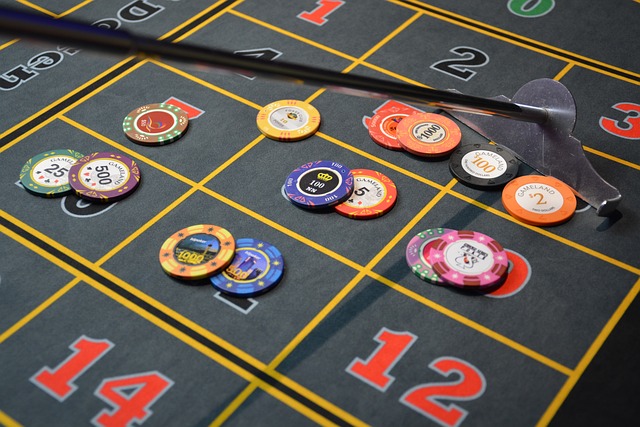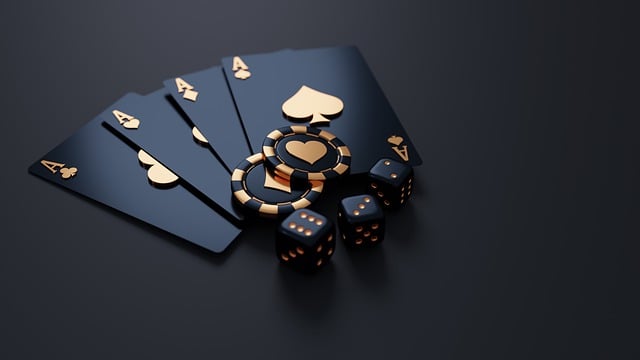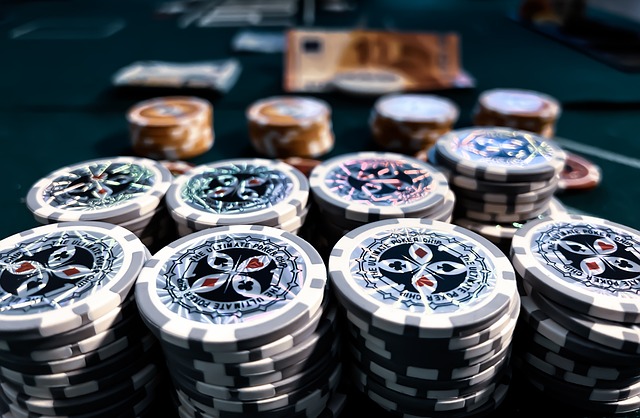 Not to be confused with the ‘Miami Vice’ actor, or numerous others with same name, Donald ‘Don’ Johnson has been described as a professional blackjack ‘hustler’, but that does him an injustice. True, he did collectively win over $15 million from three different Atlantic City casinos during a six-month period between December 2010 and April 2011, but he did so by playing, as he put it, ‘fair and square’. There is, and never was, any suggestion that he pretended to be anything other than what he is, or that he conned or deceived others for personal gain.
Not to be confused with the ‘Miami Vice’ actor, or numerous others with same name, Donald ‘Don’ Johnson has been described as a professional blackjack ‘hustler’, but that does him an injustice. True, he did collectively win over $15 million from three different Atlantic City casinos during a six-month period between December 2010 and April 2011, but he did so by playing, as he put it, ‘fair and square’. There is, and never was, any suggestion that he pretended to be anything other than what he is, or that he conned or deceived others for personal gain.
Born in Salem, Oregon on May 10, 1962, Johnson is, in fact, a former corporate executive. In the wake of the financial crisis between 2007 and 2010, during which several Atlantic City casinos filed for bankruptcy and the industry, as a whole, struggled with declining gaming revenue, he was in a robust position to negotiate changes to blackjack house rules and other ‘perks’, which effectively negated the house edge. For example, under normal circumstances, the house must hit, as opposed to stand, on a soft 17 and players can split aces only once. As a ‘high roller’, Johnson also negotiated a 20% refund on all losses over $500,000. He later said of the casinos, “They began offering deals that nobody’s ever seen in New Jersey history.”
Under such favourable conditions, and playing single blackjack hands at $100,000 at time, Johnson won a total of $6 million at the Tropicana – including $800,000 in single, unlikely hand, during which he was dealt four eights in a row, allowing him to split, re-split and double down on each of his four hands – $5 million at the Borgata and $4 at Caesars. All three casinos had a rapid change of heart, but Caesars reacted worst of all, effectively banning Johnson from all its casinos worldwide.
 Born in New York in 1933, Joe Classon was a professional casino cheat who, alongside his older brother Henry, and others, perfected several techniques for winning money by illegitimate means. Not least of those techniques was ‘past posting’ or, in other words, placing, or increasing, winning bets after the outcome of an event is known. The technique is applicable to table games, such as blackjack, craps and roulette, but requires skill, teamwork and timing to place illegal late bets at a time when the croupier is distracted, deliberately or routinely.
Born in New York in 1933, Joe Classon was a professional casino cheat who, alongside his older brother Henry, and others, perfected several techniques for winning money by illegitimate means. Not least of those techniques was ‘past posting’ or, in other words, placing, or increasing, winning bets after the outcome of an event is known. The technique is applicable to table games, such as blackjack, craps and roulette, but requires skill, teamwork and timing to place illegal late bets at a time when the croupier is distracted, deliberately or routinely.
Classon Jnr. honed his skills, with no little success, in the casinos of Puerto Rico, Cuba and Las Vegas from 1954 onwards, but in the mid-sixties met Ruthie Berin, a showgirl at the
Stardust Resort and Casino on the Las Vegas Strip, with whom he began a professional and romantic relationship. A beautiful and charismatic woman, Berin had no qualms about charming casino employees into paying out on illegal, past post bets. Berin eventually left Classon for a Hollywood film producer, but by that stage, he had already become acquainted with Duke Swenson and would later recruit Jerry Palmer, who had known Swenson since school, to form what would become the most successful past posting team in history.
Between 1969 and 1989, when Classon retired, the team continued to ply its trade and, in 1977, was joined by the now-legendary ‘poacher-turned-gamekeeper’ Richard Marcus. At the time, Marcus was a baccarat dealer at the Four Queens in downtown Las Vegas and, following a direct approach from Classon, created a ‘false shuffle’ to protect the cards at the top of the shoe and produce winning hands for the team. Thus, when dealt by a relief dealer, the cards produced a profit of $30,000 without arousing any suspicion at at all.
 Born in Deauville, France on February 14, 1948, Monique Laurent was responsible for what Richard Marcus – who cheated casinos worldwide for $25 million – described as ‘ one of the greatest scams of all time’. Working in conjunction with her brother, who was a roulette croupier at Casino Deauville, and her husband, Laurent came up with an innovative scheme to influence the outcome of each spin of a roulette wheel by inserting a tiny radio receiver into a roulette ball.
Born in Deauville, France on February 14, 1948, Monique Laurent was responsible for what Richard Marcus – who cheated casinos worldwide for $25 million – described as ‘ one of the greatest scams of all time’. Working in conjunction with her brother, who was a roulette croupier at Casino Deauville, and her husband, Laurent came up with an innovative scheme to influence the outcome of each spin of a roulette wheel by inserting a tiny radio receiver into a roulette ball.
After much trial and error, a sculptor friend designed a duplicate roulette ball, of the same dimensions and weight as a standard ball, which could be unobtrusively introduced into play at any time. By pressing a button on a radio transmitter, concealed within a cigarette packet, Laurent could cause the roulette ball to divert into a group of six numbers with an accuracy of 90%. Bearing in mind this was 1973, the use of radio transmitters represented a new level of sophistication and the fraudsters were able to make five million French francs in a week before the casino operators got wind of any wrongdoing.
The subterfuge was eventually discovered when the amorous casino manager, who had been rebuffed more than once, noticed that Laurent always stood close to the roulette wheel, but never placed a bet and appeared for all the world to be a largely disinterested spectator. Of course, she also always carried a cigarette packet, but never smoked. His suspicions aroused, he alerted security staff, who discovered that a radio signal was being transmitted in the vicinity of the roulette wheel. The police were called and when asked for a cigarette from the ‘dummy’ packet containing the radio transmitter Laurent could not, of course, provide one; the cigarette packet was confiscated, the transmitter discovered and the fraudsters arrested.
 A former computer techncian for the Nevada Gaming Control Board – on whose Excluded Person List his name has appeared since February 20, 1997 – Ronald Dale ‘Ron’ Harris was responsible for series of lucrative and, for the most part, undetected casino scams in the nineties.
A former computer techncian for the Nevada Gaming Control Board – on whose Excluded Person List his name has appeared since February 20, 1997 – Ronald Dale ‘Ron’ Harris was responsible for series of lucrative and, for the most part, undetected casino scams in the nineties.
Initially, he secretly, and illegally, devised a slot machine rigging program, which was installed by unsuspecting representatives during the checking of the machines in question for correct operation. Once installed, the program allowed the jackpot to be triggered by a predetermined sequence of coins. Between 1993 and 1995, Dale and his partner in crime, Reid Errol McNeal, successfully swindled Las Vegas casinos out of hundreds thousands of dollars.
By late 1994, though, Dale has switched his attention to slot poker and keno machines and devised a program that allowed him to predict winning plays without meddling. That, too, proved successful, reportedly yielding $10,000 from a Las Vegas keno machine in the space of five minutes in December 1994.
However, the subterfugue was ultimately discovered when Harris and McNeal hit a $100,000 keno jackpot at Bally’s Park Place, now Bally’s Atlantic City, in Atlantic City, New Jersey in January 1995. Sloppily, McNeal, who was not carrying identification, requested payment in cash and, when state gaming officials arrived to verify the jackpot – as was legally required – he was arrested.
Harris fled the scene, but left behind damning evidence of the scheme and he, too, was arrested on his return to Las Vegas. Both men were charged with attempted theft by deception, conspiracy and computer theft. Harris was convicted and sentenced to seven years in jail, of which he served two. At the time of sentencing, District Judge Peter Breen told Harris, “There is no question the depth of your betrayal was complete.”
